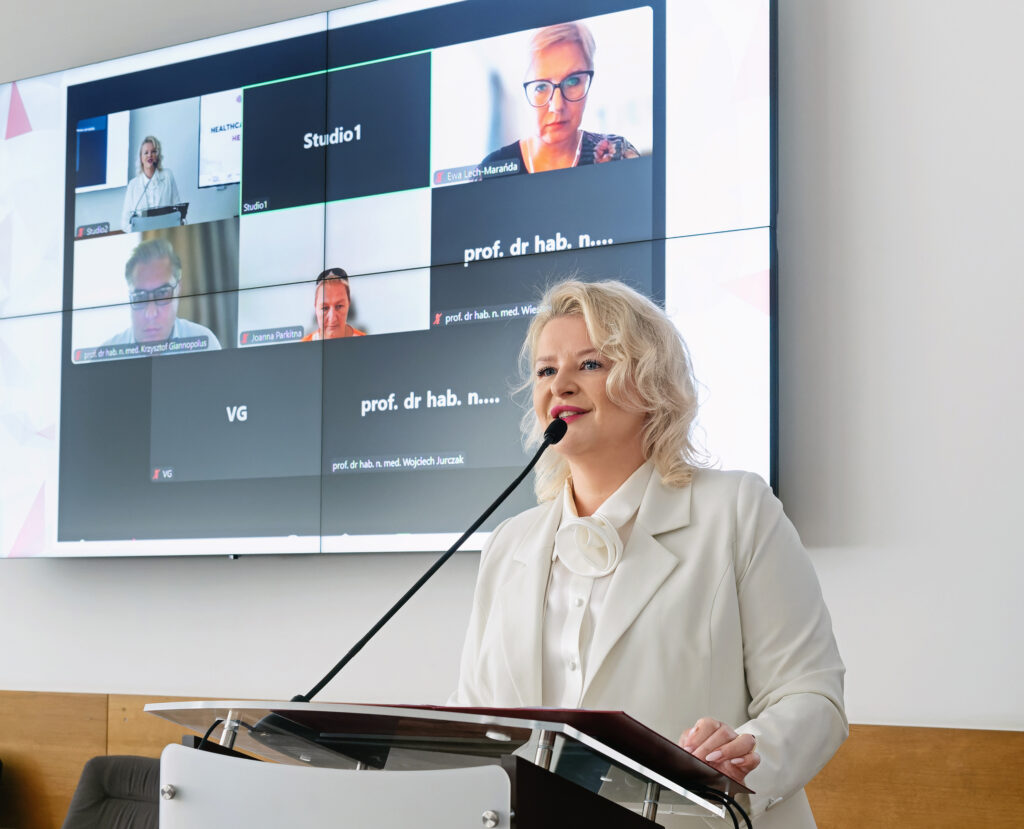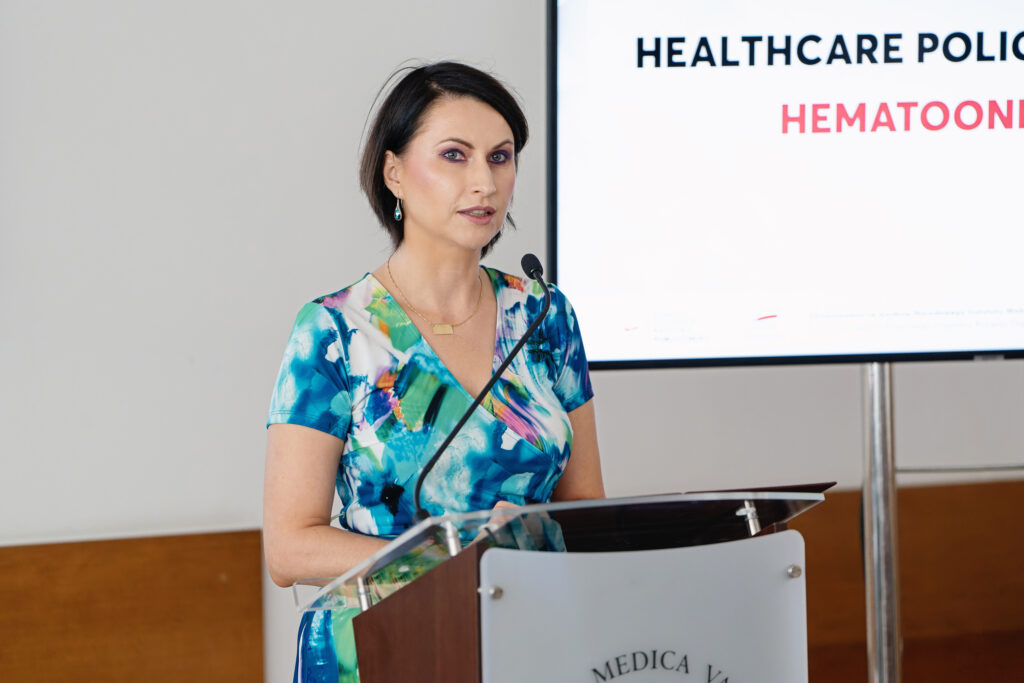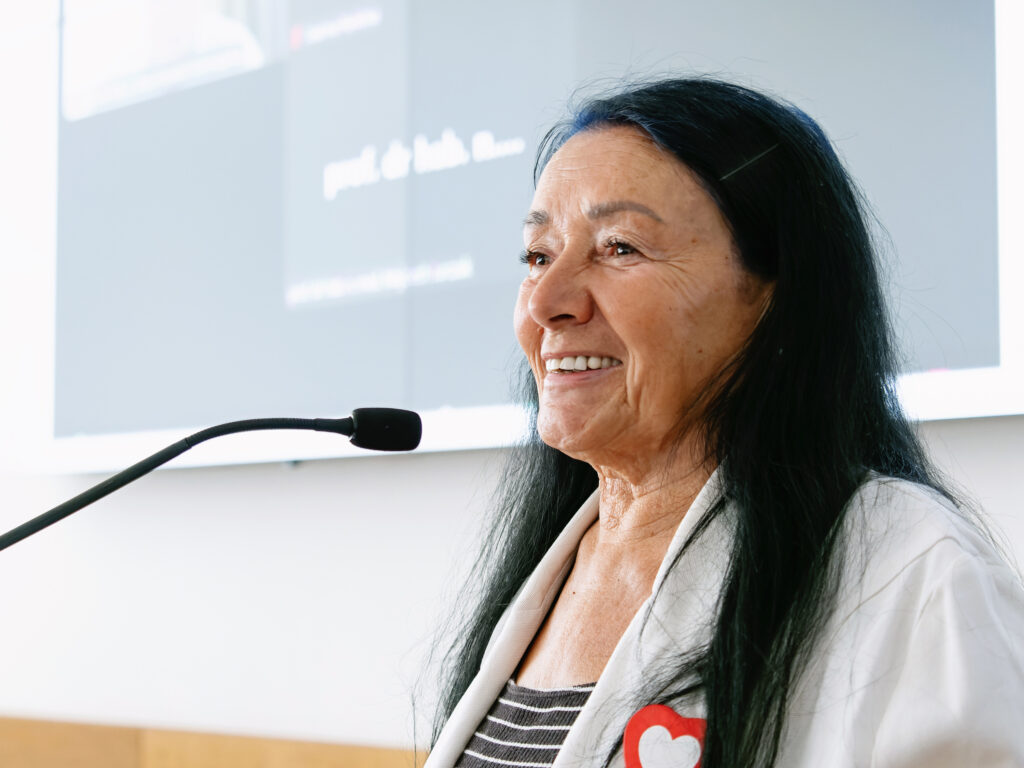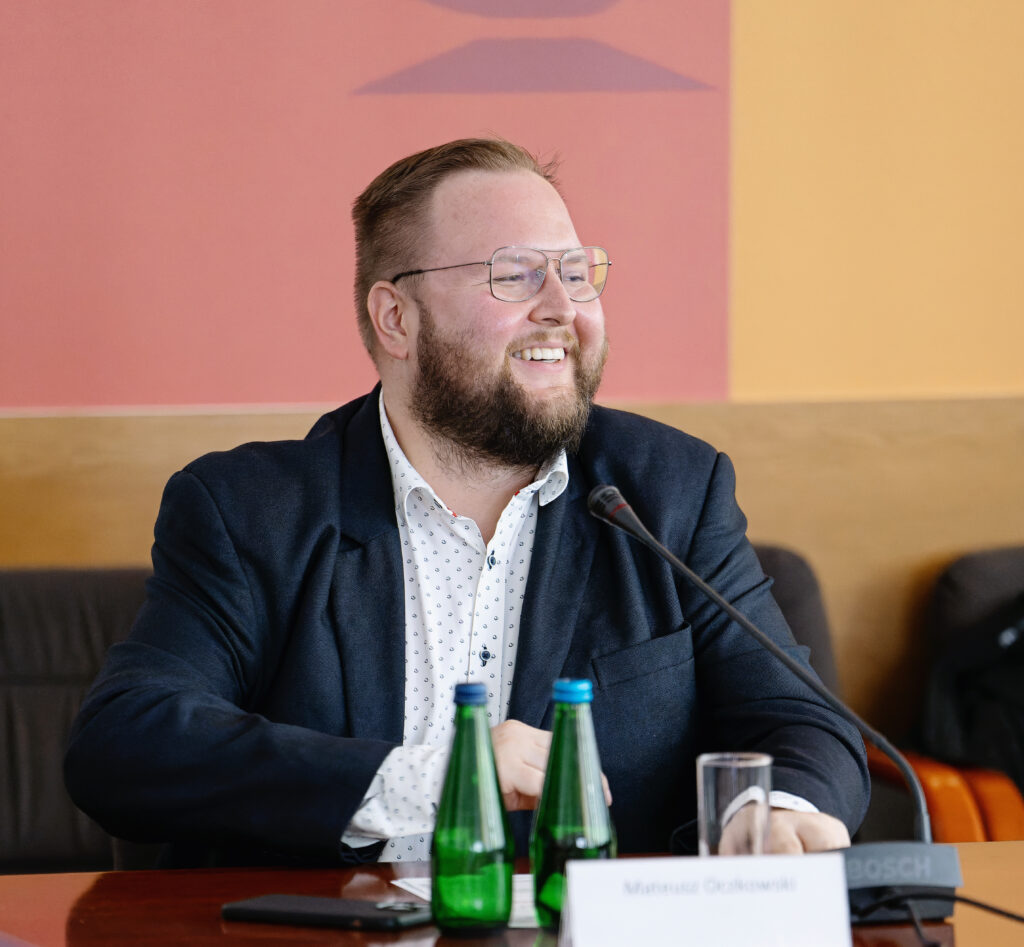News
backThe new reimbursement list will bring revolutionary changes for patients with blood cancers. We invite you to read the comprehensive report from the Healthcare Policy Roundtable – Hemato-oncology.
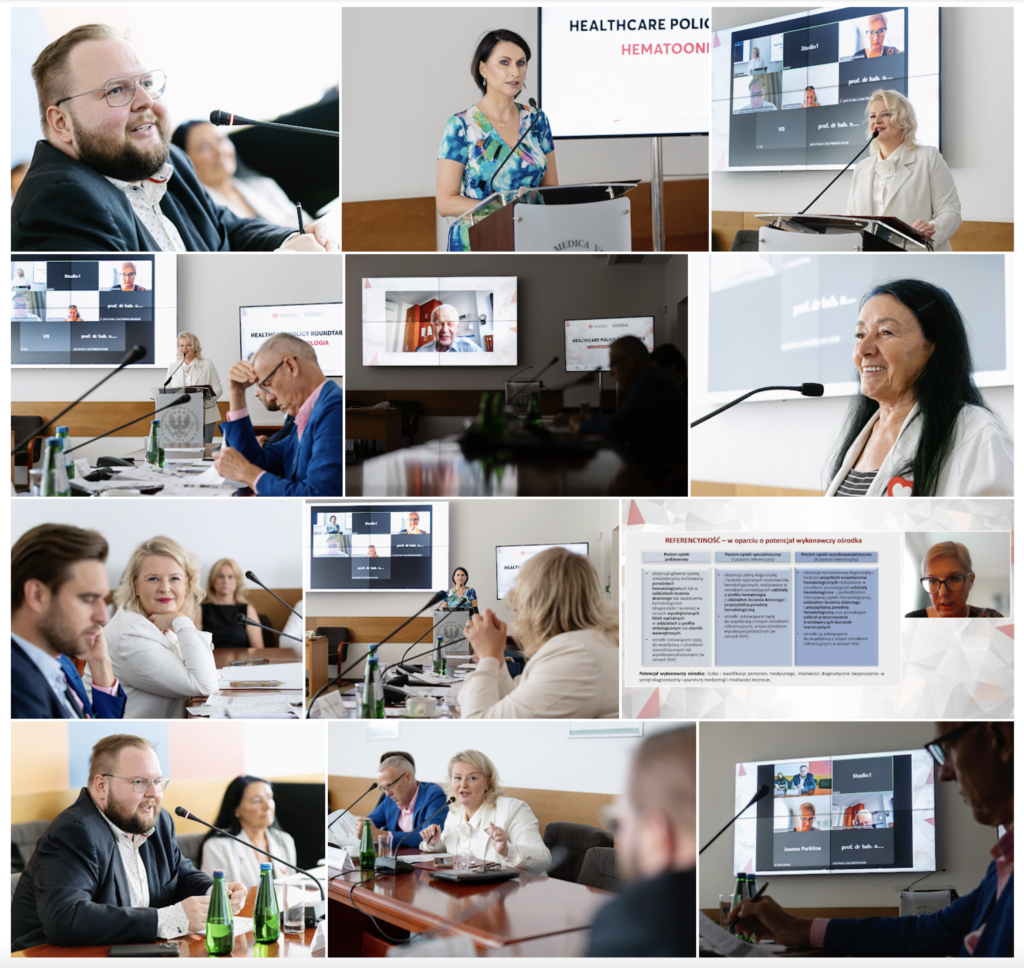 In recent years, hematology-oncology has made significant progress in the registration of new therapies. Poland now has access to these therapies at the European level, and the next reimbursement list will bring another breakthrough for patients. On September 6, 2024, representatives of public institutions and leading medical experts discussed the challenges facing Polish hematology-oncology. The meeting was part of the Institute for Social Development’s “Healthcare Policy Roundtable” series, organized in cooperation with the Medical Center of the Medical University of Warsaw.
In recent years, hematology-oncology has made significant progress in the registration of new therapies. Poland now has access to these therapies at the European level, and the next reimbursement list will bring another breakthrough for patients. On September 6, 2024, representatives of public institutions and leading medical experts discussed the challenges facing Polish hematology-oncology. The meeting was part of the Institute for Social Development’s “Healthcare Policy Roundtable” series, organized in cooperation with the Medical Center of the Medical University of Warsaw.
Experts emphasized that since 2019, many changes have occurred in Polish hematology-oncology, and patients have gained access to modern therapies.
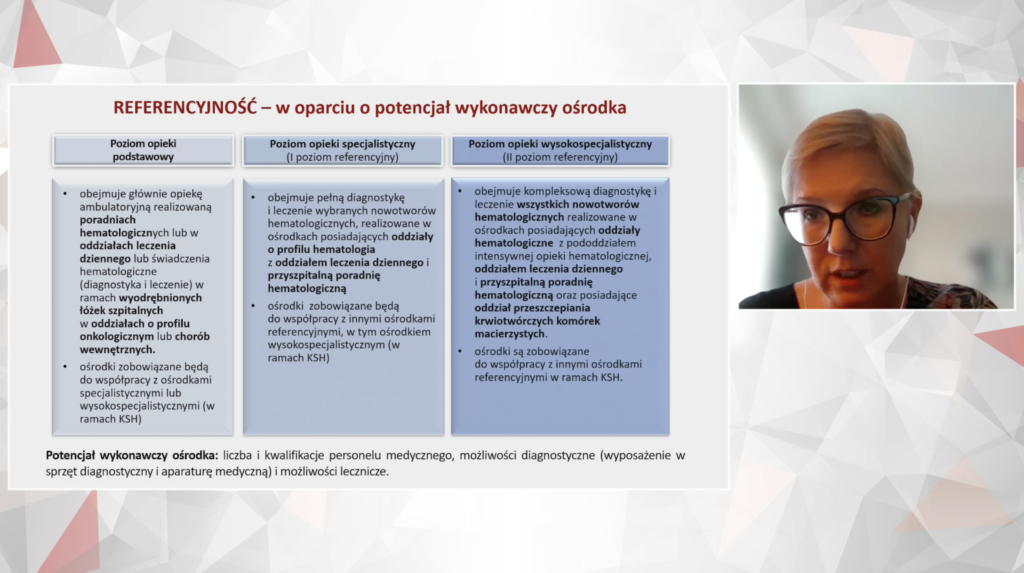 – “Both adult and pediatric hematology are rapidly evolving fields. Several new registrations occur each year, and new therapies are continuously being reimbursed in Poland. We currently have access to medicines at the European level, although new needs continue to emerge,” said Prof. Dr. Ewa Lech-Marańda, National Consultant in Hematology and Director of the Institute of Hematology and Transfusion Medicine in Warsaw.
– “Both adult and pediatric hematology are rapidly evolving fields. Several new registrations occur each year, and new therapies are continuously being reimbursed in Poland. We currently have access to medicines at the European level, although new needs continue to emerge,” said Prof. Dr. Ewa Lech-Marańda, National Consultant in Hematology and Director of the Institute of Hematology and Transfusion Medicine in Warsaw.
She also added that from 2019 to 2023, access to modern hematological therapies significantly improved, with 75 new therapy indications reimbursed across 26 hematological diseases, both cancerous and non-cancerous. Prof. Dr. Krzysztof Giannopoulos, President of the Polish Society of Hematologists and Transfusionists, also noted that advances in medicine have changed the approach to treating blood cancers.
 – “We are moving away from chemotherapy and immunochemotherapy toward immunotherapies. These focus on two areas: CAR-T cell technology and bispecific antibodies, which engage T cells. Studies show that compared to classic chemotherapy and immunochemotherapy, these therapies have a significant advantage,” said Prof. Krzysztof Giannopoulos. He emphasized that access to bispecific antibodies is now crucial.
– “We are moving away from chemotherapy and immunochemotherapy toward immunotherapies. These focus on two areas: CAR-T cell technology and bispecific antibodies, which engage T cells. Studies show that compared to classic chemotherapy and immunochemotherapy, these therapies have a significant advantage,” said Prof. Krzysztof Giannopoulos. He emphasized that access to bispecific antibodies is now crucial.
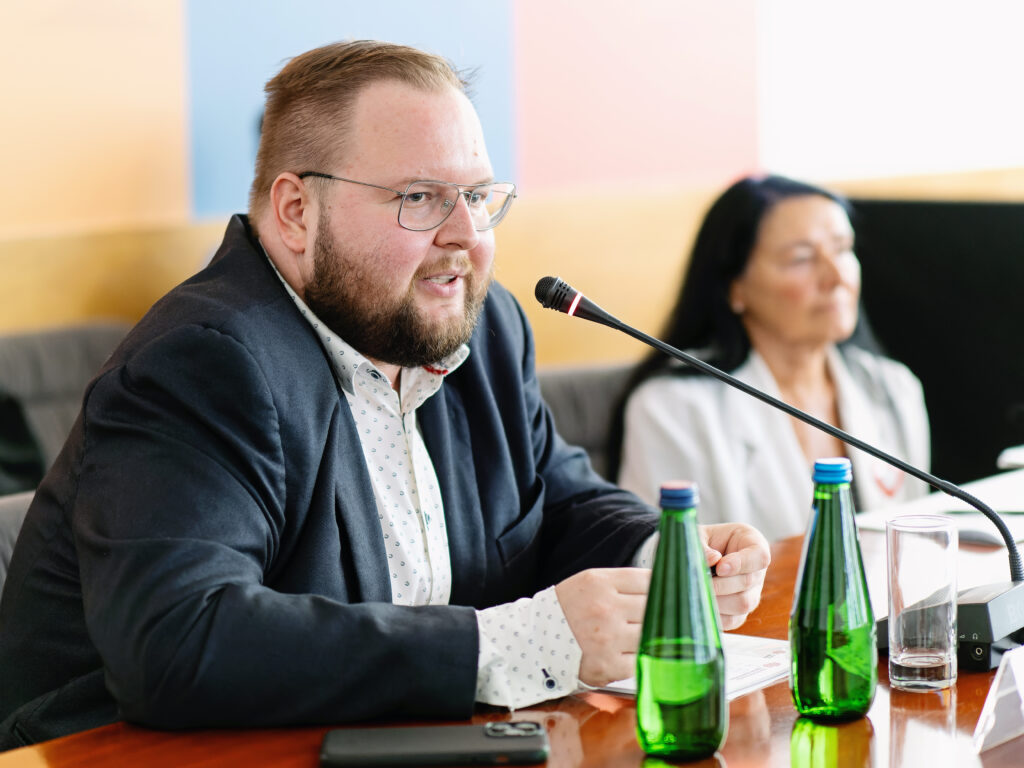 Mateusz Oczkowski, Deputy Director of the Department of Drug Policy and Pharmacy at the Ministry of Health, noted that hemato-oncology is one of two health priorities for the Ministry of Health – oncology and rare diseases.
Mateusz Oczkowski, Deputy Director of the Department of Drug Policy and Pharmacy at the Ministry of Health, noted that hemato-oncology is one of two health priorities for the Ministry of Health – oncology and rare diseases.
– “Since 2019, instead of viewing technologies as a necessary burden for decision-makers and public payers, we see them as an investment in health. We have made many such investments over the past five years,” said Mateusz Oczkowski.
According to the Ministry of Health representative, the upcoming reimbursement list will be groundbreaking for patients with blood cancers.
– “Our work in hemato-oncology has been substantial. By 2023, 75 therapy indications received reimbursement, and by 2024, this number will exceed 90. The reimbursement announcement to be published on September 17 will be a turning point for hemato-oncology, with six new indications. We hope this will include two new CAR-T therapies and three bispecific antibodies. I don’t recall a reimbursement list with such a high level of technological innovation,” added Mateusz Oczkowski.
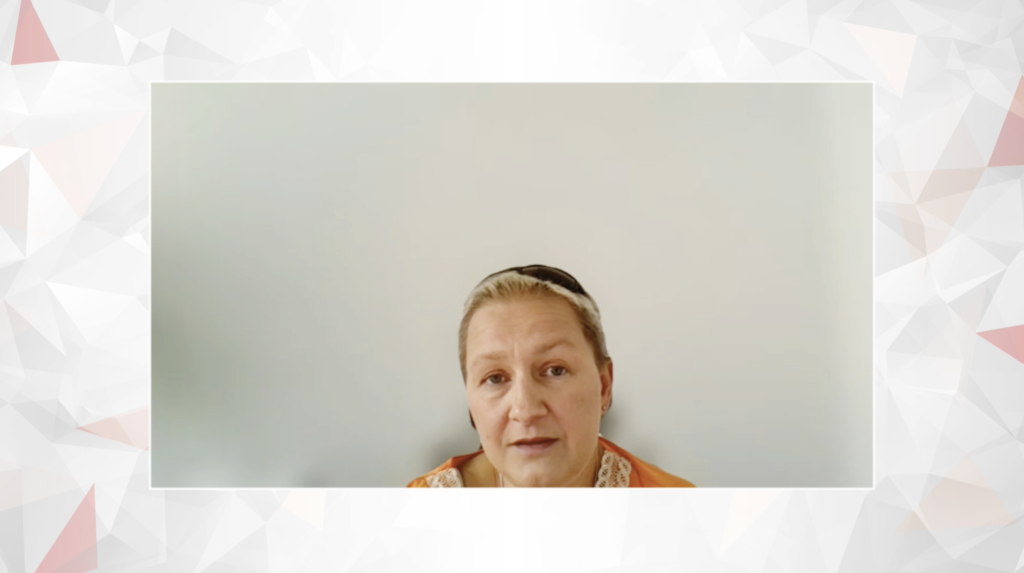 Joanna Parkitna, Director of the Medical Technology Assessment Division at the Agency for Health Technology Assessment and Tariff System, confirmed that many hemato-oncology therapies are currently undergoing reimbursement processes.
Joanna Parkitna, Director of the Medical Technology Assessment Division at the Agency for Health Technology Assessment and Tariff System, confirmed that many hemato-oncology therapies are currently undergoing reimbursement processes.
– “Looking at the statistics of assessments carried out by the Agency for Health Technology Assessment and Tariff System over the last two months, we evaluated five drugs in four programs related to lymphoblastic leukemia, cellular lymphomas, and multiple myeloma,” noted Joanna Parkitna.
Experts also discussed the shortage of hematologists in Poland.
– “As of March 31, there were 594 actively practicing hematologists, giving us a ratio of 1.57 hematologists per 100,000 people. Provincial consultants declare that the optimal number would be 3 hematologists per 100,000 residents,” said Prof. Ewa Lech-Marańda.
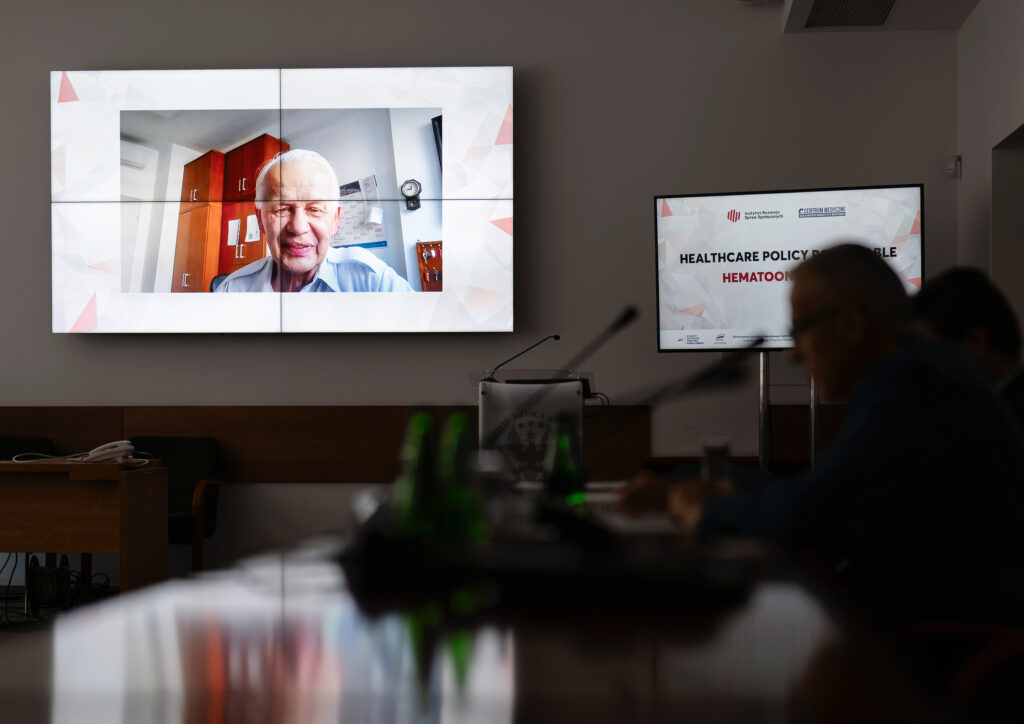 Prof. Dr. Wiesław Jędrzejczak from the Department of Hematology, Oncology, and Internal Diseases at the Medical University of Warsaw added,
Prof. Dr. Wiesław Jędrzejczak from the Department of Hematology, Oncology, and Internal Diseases at the Medical University of Warsaw added,
– “The number of hematologists has tripled, which is significant progress, but it is still insufficient. There are two reasons for this shortage. First, society is aging – most hematologic cancers are diseases of the elderly, and this population is increasing. Second, we are ‘victims of our own success.’ The survival time for blood cancer patients used to be much shorter. Now, these are diseases that people live with for many years, but they are not cured. As a result, patients require many more medical services.”
Experts repeatedly emphasized that most blood cancers are rare diseases. Prof. Dr. Alicja Chybicka, Chairwoman of the Parliamentary Group for Rare Diseases, highlighted the adoption of the Rare Diseases Plan for 2024-2025 by the Council of Ministers in August 2024, which is also significant for hematologists.
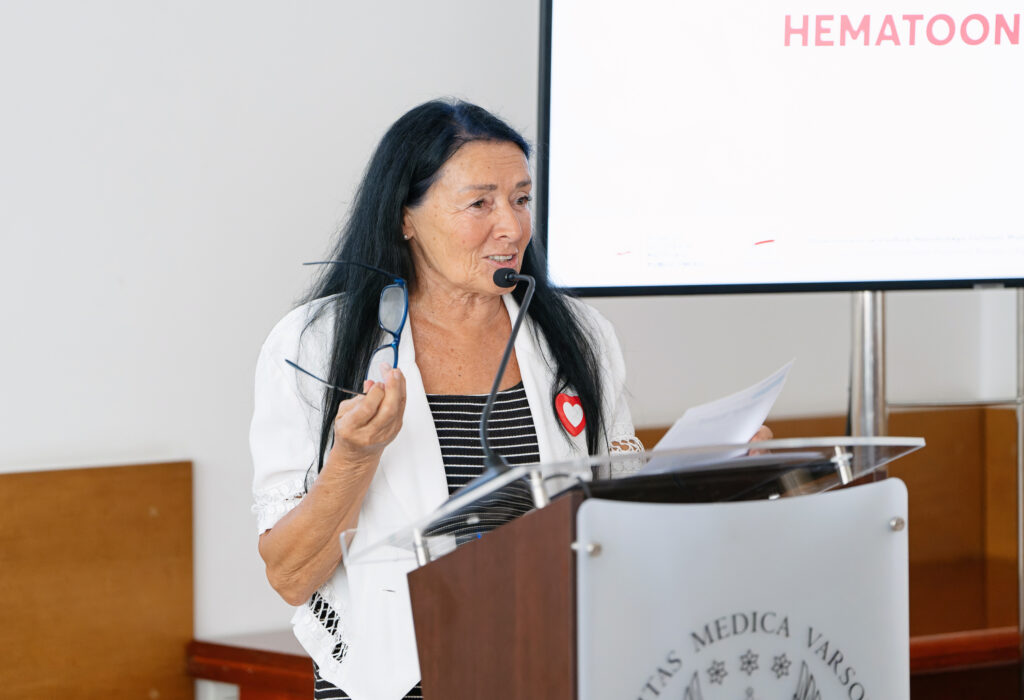 – “The Rare Diseases Plan has six areas that apply to all rare diseases in hemato-oncology. The first is the establishment of expert centers for rare diseases, including hematology centers, which must be accredited. The second area focuses on improving access to diagnostic tests used in the diagnosis and treatment of rare diseases. The third area concerns improving access to medicines and special-purpose foods for rare diseases. The fourth is the Polish Rare Disease Registry, which has already been prepared and now needs to be implemented. The fifth element is the Rare Disease Patient Card, which requires the digitization of much data, presenting a challenge. The sixth area is the Rare Disease Information Platform, which has already begun operating,” added Prof. Alicja Chybicka.
– “The Rare Diseases Plan has six areas that apply to all rare diseases in hemato-oncology. The first is the establishment of expert centers for rare diseases, including hematology centers, which must be accredited. The second area focuses on improving access to diagnostic tests used in the diagnosis and treatment of rare diseases. The third area concerns improving access to medicines and special-purpose foods for rare diseases. The fourth is the Polish Rare Disease Registry, which has already been prepared and now needs to be implemented. The fifth element is the Rare Disease Patient Card, which requires the digitization of much data, presenting a challenge. The sixth area is the Rare Disease Information Platform, which has already begun operating,” added Prof. Alicja Chybicka.
Blood cancers are also the focus of EU-level initiatives, and Poland’s presidency of the Council of the European Union, beginning on January 1, 2025, could become a platform for discussions on hemato-oncology.
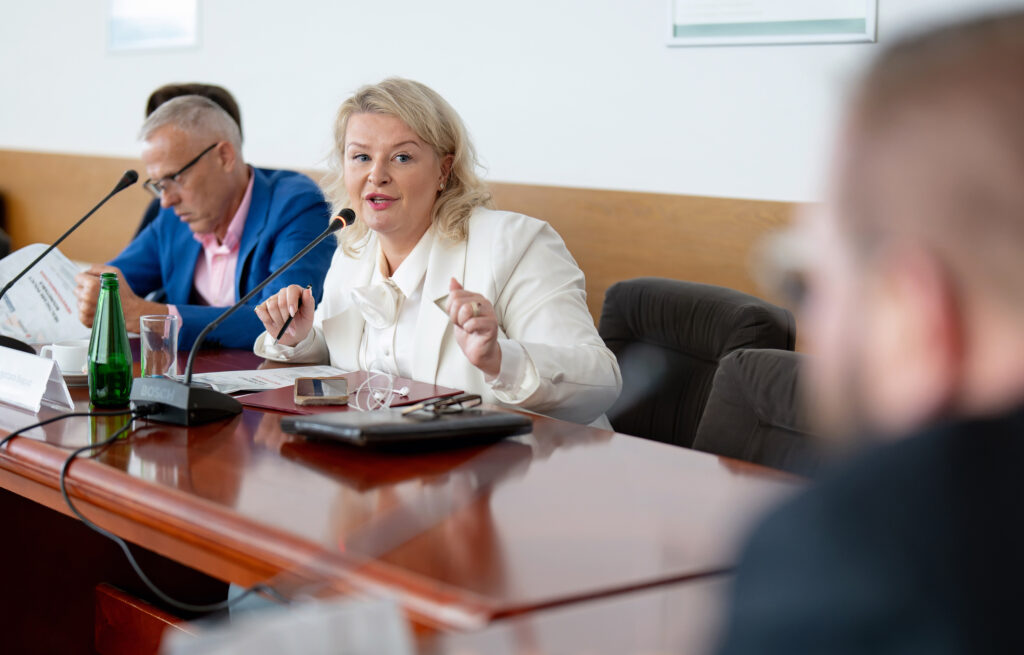 – “As part of the European Cancer Plan, European reference networks have been established, including ERN-EuroBloodNet, a network for rare hematologic diseases. It currently consists of 66 recognized healthcare facilities in 15 member states and aims to facilitate the transfer of the most specialized knowledge and services for the treatment of patients with rare hematologic diseases,” said Małgorzata Bogusz, President of the Institute for Social Development and Member of the European Economic and Social Committee.
– “As part of the European Cancer Plan, European reference networks have been established, including ERN-EuroBloodNet, a network for rare hematologic diseases. It currently consists of 66 recognized healthcare facilities in 15 member states and aims to facilitate the transfer of the most specialized knowledge and services for the treatment of patients with rare hematologic diseases,” said Małgorzata Bogusz, President of the Institute for Social Development and Member of the European Economic and Social Committee.
Prof. Krzysztof Giannopoulos also pointed out that the hematology community is working to make rare diseases a topic during Poland’s presidency of the Council of the European Union, highlighting that pediatric hematology and oncology fit perfectly into the rare diseases area.
Justyna Mieszalska, President of the Medical Center of the Medical University of Warsaw, emphasized that the timing of the debate was not accidental, as September is Blood Cancer Awareness Month worldwide.
– “Awareness of blood cancers is increasing. However, hematologic cancers are still often only associated with leukemia, while there are many more types,” added Justyna Mieszalska.

